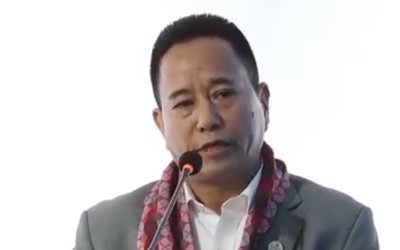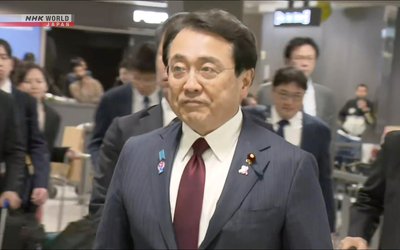More on News





On arriving in Nepal, an outsider can immediately notice the state of the country’s roads, the garbage strewn on the streets, the power cuts that can range from 6 to 18 hours depending on the season and region,and the lack of sanitary sources of water, amongst certain things.Without difficulty, one can infer that Nepal is facing development challenges. Besides these obvious shortcomings, however, there are also the more subtle problems that an outsider may not be able to immediately observe.
The Human Development Report (HDR) published by the UN Development Program sheds light on Nepal’s several development issues. There is an endless amount of numbers compiled in the report, and they never seem to be favouring Nepal, not even in one of the 18 different criteria assessed. Nepal’s Human Development Index (HDI) score puts it in the 138th place in the overall rankings. That is out of 169 countries included in the survey. It is important to realise that the variables that go into calculating HDI scores are not only economic indicators,but are mostly concerning people’s access to resources and facilities such as education, healthcare and infrastructure. Political participation and freedom are also important factors, and one of the most important notions that the report takes into account, especially in Nepal’s case, is social inequality. In fact, inequality is such an important obstacle for Nepal’s development that it is pointed out as a major underlying reason for underdevelopment in the UNDP Country Report for Nepal and the Asian Development Bank’s Outlook Report. This fact seems to have hit home domestically as well, as the National Planning Commission’s policy agenda includes terms such as “social inclusion” and “equitable distribution”.
It is now clear that economic growth alone is not the answer to development. Since the concept of Human Development gained currency and validity in the global arena in the early 1990s, governments have started to accept the responsibility to take into consideration social factors that make up the base for the HDR’s assessment criteria. It is, however, an inescapable fact that economic growth is an enabling factor that will open the doors for social restructuring and the provision of basic needs and resources for all. And not only does Nepal need to rebuild its social structure, but it also has to sort out its economy to be able to accomplish the former. For quite some time now, Nepal has been struggling to generate a decent amount of capital. The growth rate, which was 4.5% this year, falls far behind some of Asia’s more successful economies.
Moreover, lately the economy has been declining even further. Economists say that this is the result of neglect from the CA, which is busy with other issues, such as drafting the constitution, or rather bickering over which party and which leader is going to take the reigns once the constitution issue is settled. It seems as though development efforts, which Nepal is in dire need of, are being hindered because of the current turbulent political environment.
If the politicians are too busy to shift their focus on development,then whose responsibility is it to take care of it? Here, it is necessary to make an important distinction. While the politicians are the ones who make the important decisions and get all the media attention, it is the bureaucracy that does the work that matters. This work ranges from creating policy guidelines and agendas to the work of actually implementing such plans at the practical level. On both ends of the spectrum, however, the efforts are undercut by the current political situation.
The Vice-Chairman of the National Planning Commission Dr. Dinesh Chandra Devkota repeatedly underlined the importance of the settlement of the constitutional process, and remarked that political instability is “a major issue” hampering development, and in fact, is a result of the uprising of the people who are excluded from development. In this light, he explained that the development plans firstly focus on the impoverished regions and strive to provide basic needs and provisions to the poorest. He also admitted that the economy has not been the priority of the CA lately, but expressed his hope that once the new constitution is settled, the economic agenda, with the efforts of the NPC, will become very important for the government and the economy will take a turn for the better.
On the other end, where the policies are transformed into concrete projects, the Secretary of the Ministry of Local Development, Sushil Ghimire, expressed that they face practical problems. He said that even though the bureaucracy functions within its own system separate from the government, they face several problems as a result of current political affairs. Firstly, he explained, some of the important policy-level decisions that enable them to do their work get delayed, and secondly there is a “political vacuum” in rural areas (the Ministry’s main area of operation), meaning that there are no elected government officials due to the lack of elections. This results in certain responsibilities not being taken, making things even more difficult for the MLD.
The one point of concern is that the 2063 (2007) Interim Constitution has also laid out clear terms for the social and political inclusivity of “Women, Dalit, indigenous tribes, [the] Madheshi community,oppressed group[s], the poor peasant[s] and labourers, who are economically, socially or educationally backward,” but these principles have to a great extent remained on paper. The public has now to a great extent lost its hope and believes that the new constitution, if it is ever completed, might still not fulfil all of its promises in practice. And what of the federal system, which might not appease all of the ethnic groups in Nepal’s complex social fabric and lead to further uprisings and instability? There is of course also the added likelihood that the three-month extension period might not bear any fruit. What may we face then? The aspiration to find political stability and finally to be able to move on to developing the country is encouraging, but for now, just as it has done for the past two decades, Nepal plays the waiting game.
Troy Edige is from Britain.





